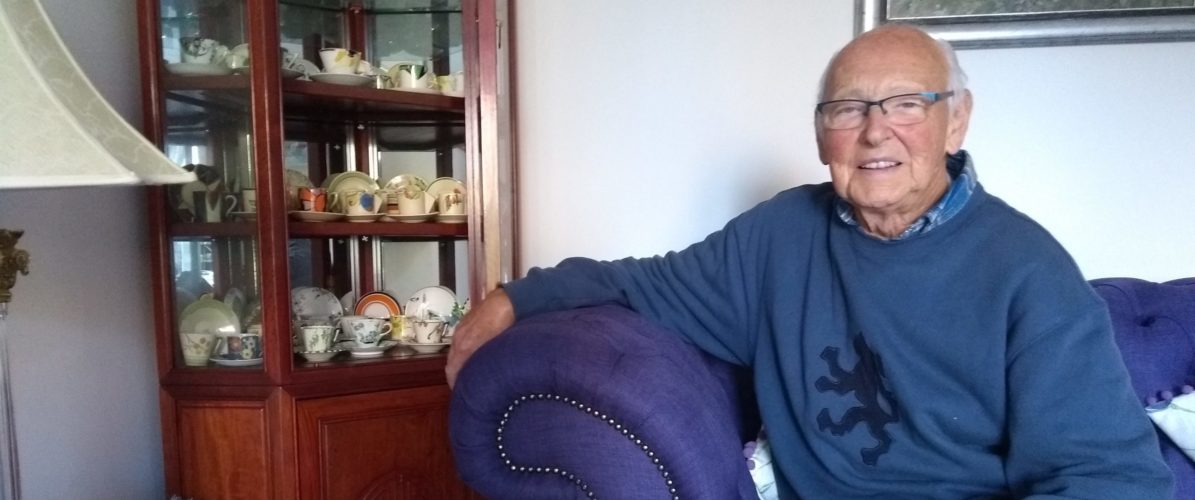Why we fly
John P’s Story

“I suddenly felt as though I was going to pass out so I stepped on to the grass. That’s the last thing I remember until I woke up in hospital,” he says.
When retired retail manager John Putt (83) collapsed at Compton Verney in Warwickshire he was amongst a crowd of thousands of people.
The grounds of the art gallery were being used as a location for the BBC’s Antiques Roadshow and John was on his way back to the car park having had some of his collection of 1930s coffee cups valued and filmed.
He has the lung disease COPD and finds it difficult to walk uphill without getting breathless.
“I suddenly felt as though I was going to pass out so I stepped on to the grass. That’s the last thing I remember until I woke up in hospital,” he says.
Had John been at home alone – which he would have been if he wasn’t at the event – he could have died. He had suffered a cardiac arrhythmia which can be life threatening if not treated quickly.
Bystanders started CPR on him immediately and a paramedic working for the television company took over his treatment until a land ambulance and Warwickshire & Northamptonshire Air Ambulance (WNAA) arrived at the scene.
John had a very low pulse rate when the air ambulance critical care team took over his care and he was given a drug to increase his heart rate. He was also attached to specialist equipment to regulate his heart beat if necessary.
The air ambulance crew stabilised John and he was flown to University Hospital Coventry & Warwickshire where there is a specialist cardiology department.
Due to the popularity of the Antiques Roadshow, there were queues of cars entering the site and heavy traffic in the immediate area so transporting him by air was the quickest way of getting him to the urgent medical care he needed.
Two days after being admitted to hospital John underwent an operation to have a pacemaker fitted and after a few days recovery on the wards he was allowed home.
“There is no doubt in my mind that going to Compton Verney that day saved my life. Had I been on my own at home I would have died. I am very happy to still be alive,” he says.
John and his wife Madeleine, who live in Rugby, are regular supporters of the local air ambulance charity.
“We have always felt very sad that the country doesn’t finance the helicopters and so we make donations to help keep them flying. I am now a living example of the lifesaving work they do,” he says.
WNAA critical care paramedic Philippa Gibbs was part of the crew who treated John. She says:
“Thanks to the initial assessment and care given to John by the paramedic employed by the BBC following the CPR given by bystanders, we came along and were able to continue the treatment that resulted in such a good outcome for him.”
“Restart A Heart Day on October 16th is the perfect opportunity to highlight the importance of learning how to do CPR and enable people to spend just 10 minutes to gain confidence in doing this. The first link in the ‘chain of survival’ is the most important one as shown by John’s and many other survivors’ stories.”
